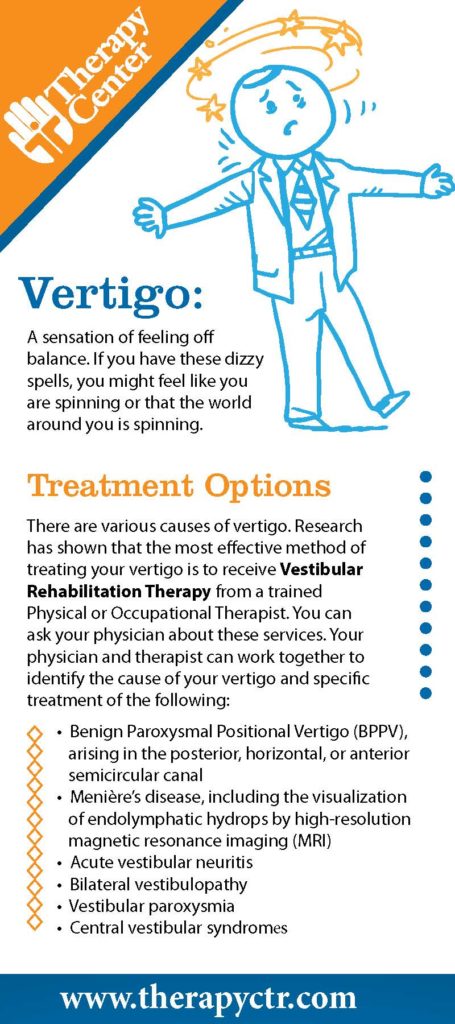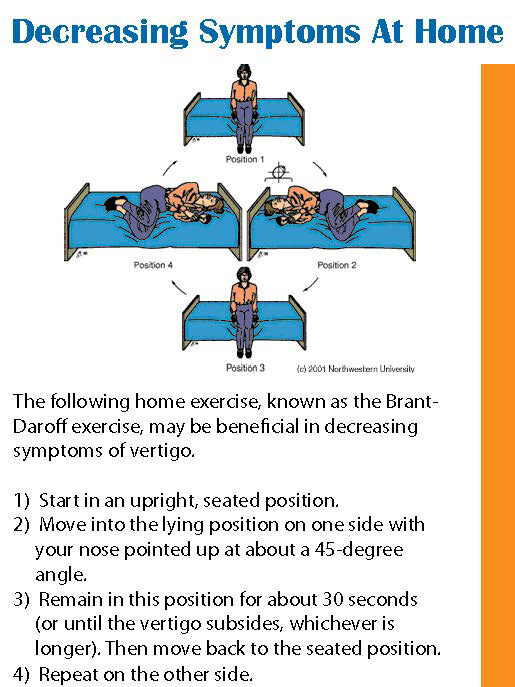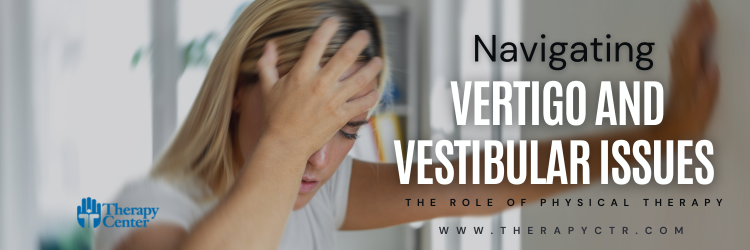 Vertigo and vestibular issues can significantly disrupt one’s quality of life, making even simple tasks a challenge. Whether you’ve been recently diagnosed or have been dealing with these issues for a while, there’s hope for improved well-being. This article offers valuable tips for those suffering from vertigo or vestibular issues and discusses how physical therapy can play a vital role in treatment.
Vertigo and vestibular issues can significantly disrupt one’s quality of life, making even simple tasks a challenge. Whether you’ve been recently diagnosed or have been dealing with these issues for a while, there’s hope for improved well-being. This article offers valuable tips for those suffering from vertigo or vestibular issues and discusses how physical therapy can play a vital role in treatment.
Understanding Vertigo and Vestibular Issues
Before diving into tips and treatment options, it’s important to understand what vertigo and vestibular issues are. Vertigo is characterized by a false sensation of spinning or movement when you’re actually still. Vestibular issues, on the other hand, encompass a range of problems related to the inner ear and brain’s ability to process spatial orientation and balance. Common symptoms of these conditions include dizziness, imbalance, nausea, and disorientation.
Tips for Managing Vertigo and Vestibular Issues
- Consult a Specialist: If you suspect you have vertigo or vestibular issues, the first step is to consult a medical specialist. This may be an ear, nose, and throat (ENT) doctor or a neurologist. They can diagnose your condition and provide tailored guidance for treatment.
- Medication and Lifestyle Adjustments: In some cases, medication may be prescribed to alleviate symptoms. Additionally, certain lifestyle adjustments can help, such as staying hydrated, reducing caffeine and alcohol consumption, and getting adequate rest.
- Stay Active with Caution: Physical activity is essential for overall health, but for those with vertigo or vestibular issues, it’s crucial to exercise with caution. Opt for low-impact activities like walking, swimming, or gentle yoga to maintain physical fitness.
- Fall Prevention: A major concern for individuals with balance issues is the risk of falls. Make your home environment safer by removing tripping hazards and using handrails, non-slip mats, and other assistive devices.
- Vestibular Rehabilitation: One of the most effective treatments for vertigo and vestibular issues is vestibular rehabilitation, a specialized form of physical therapy.
The Role of Physical Therapy in Treatment
Vestibular rehabilitation, a type of physical therapy, focuses on improving the function of the vestibular system. A trained physical therapist works with patients to reduce dizziness and improve balance. Here’s how physical therapy can be beneficial:
- Customized Exercise Regimens: Physical therapists develop personalized exercise regimens tailored to each patient’s specific needs. These exercises target the underlying causes of vertigo and vestibular issues, gradually reducing symptoms over time.
- Habituation Techniques: Habituation exercises help patients become desensitized to movements that trigger dizziness. By gradually exposing the individual to these movements, they can adapt and experience fewer symptoms.
- Adaptation Exercises: Adaptation exercises retrain the brain to process sensory information more effectively. Over time, this can lead to improved balance and stability.
- Patient Education: Physical therapists provide essential education about the condition, how it affects the body, and how specific exercises can help manage symptoms. This empowers patients to take an active role in their own recovery.
- Improved Quality of Life: Many individuals with vertigo and vestibular issues experience significant improvements in their quality of life after undergoing vestibular rehabilitation. They regain the confidence to engage in daily activities without fear of dizziness or imbalance.
Conclusion

Vertigo and vestibular issues can be challenging, but with the right approach, they can be effectively managed. Tips such as seeking specialist care, making lifestyle adjustments, and staying active with caution are essential. However, one of the most powerful tools in the fight against these conditions is physical therapy, specifically vestibular rehabilitation. This form of therapy provides hope and practical solutions to help individuals regain their balance, reduce dizziness, and reclaim their lives. If you or someone you know is struggling with vertigo or vestibular issues, consider the potential benefits of physical therapy as a valuable treatment option.
Contact one of our clinics today for your assessment and treatment options!
For more information on Vertigo or Vestibular issues, download our free PDF.

